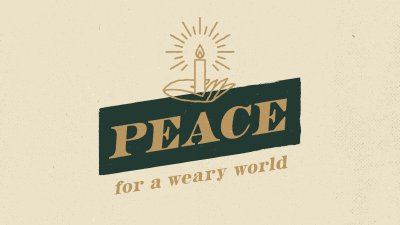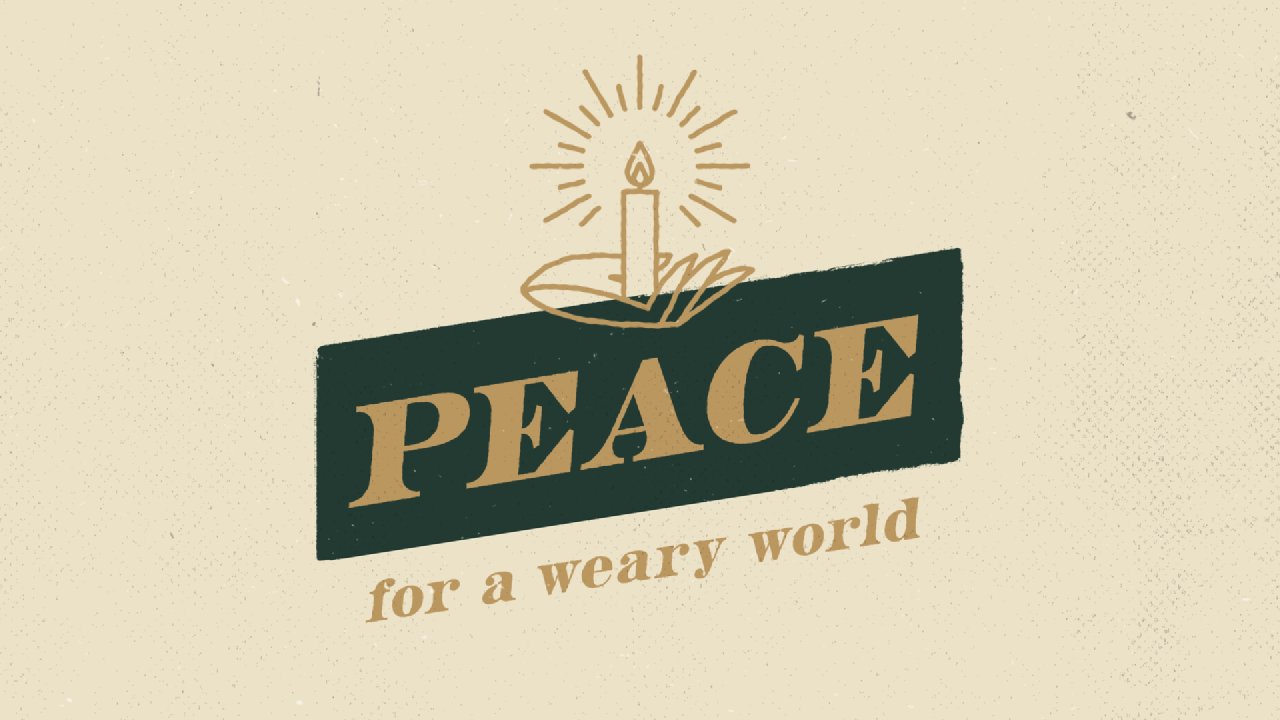The apostle Paul writes his letter to the Philippians from prison. He knows hardship, but he also knows the peace of God. This is because biblical peace, like hope, is based on a person and not on circumstances. Paul calls followers to rejoice in God at all times, to pray, to give thanks, and to think on what is good and true. Paul shows how these habits can lead to experiencing the peace of God even in the midst of great difficulty.
READ
1 Therefore, my brothers, whom I love and long for, my joy and crown, stand firm thus in the Lord, my beloved.
Exhortation, Encouragement, and Prayer
2 I entreat Euodia and I entreat Syntyche to agree in the Lord. 3 Yes, I ask you also, true companion, help these women, who have labored side by side with me in the gospel together with Clement and the rest of my fellow workers, whose names are in the book of life.
4 Rejoice in the Lord always; again I will say, rejoice. 5 Let your reasonableness be known to everyone. The Lord is at hand; 6 do not be anxious about anything, but in everything by prayer and supplication with thanksgiving let your requests be made known to God. 7 And the peace of God, which surpasses all understanding, will guard your hearts and your minds in Christ Jesus.
8 Finally, brothers, whatever is true, whatever is honorable, whatever is just, whatever is pure, whatever is lovely, whatever is commendable, if there is any excellence, if there is anything worthy of praise, think about these things. 9 What you have learned and received and heard and seen in me—practice these things, and the God of peace will be with you.
Philippians 4:1-9
REFLECT
-Make a list of all the instructions Paul gives in Philippians 4:1-9 (i.e. “stand firm in the Lord,” “live in harmony,” etc).
-Observe your list and imagine making each one into a habit. What would those habits practically look like in your daily life? How do you think those habits would eventually lead to an experience of God’s peace?

Day 14
Day 8 - PEACE video intro
"Peace" is a very common word in English, that means different things to different people. It's also a very important word in the Bible that refers not only to the absence of conflict but also to the presence of something else. In this video, we'll explore the core meaning of biblical peace and how it all leads to Jesus. READ 24 The LORD bless you and keep you; 25 the LORD make his face to shine upon you and be gracious to you; 26 the LORD lift up his countenance upon you and give you peace. Numbers 6:24-26


Day 9
The Hebrew word for peace is shalom, and it describes not only the absence of conflict but also the presence of completion, reconciliation, and justice. READ 7 When a man’s ways please the LORD, he makes even his enemies to be at peace with him. Proverbs 16:7 REFLECT -Consider what you have learned in the Bible so far. Name five habits (thoughts, actions, or words) that you believe are pleasing to God. -How do you think these habits could make peace even between enemies?


Day 10
The prophet Isaiah looked forward to the arrival of a future King, who would make a covenant of shalom with his people. His reign would right all wrongs and heal all brokenness. READ 6 For to us a child is born, to us a son is given; and the government shall be upon his shoulder, and his name shall be called Wonderful Counselor, Mighty God, Everlasting Father, Prince of Peace. 7 Of the increase of his government and of peace there will be no end, on the throne of David and over his kingdom, to establish it and to uphold it with justice and with righteousness from this time forth and forevermore. The zeal of the LORD of hosts will do this. Isaiah 9:6-7 REFLECT -What words or phrases stand out to you as you observe this passage? -Based on this passage, how does the Prince of Peace govern his Kingdom? -How can you help bring about God’s peaceful rule in the places where you have influence? -Pray to ask the Prince of Peace to govern over and through you this week.


